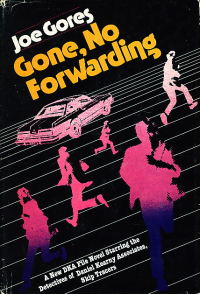Mercury's Rise by Ann Parker
 Friday, October 14, 2011 at 1:35PM
Friday, October 14, 2011 at 1:35PM 
Published by Poisoned Pen Press on November 1, 2011
Mercury's Rise is the third novel in Ann Parker's Silver Rush mystery series. The story takes place in Colorado. Ann Parker provides enough period detail to create a convincing 1880 background, although I can't say I was enthralled by her detailed descriptions of the garments worn by her female characters (readers with a stronger interest in the history of women's fashion might react differently). In any event, as she makes clear in an author's note, Parker's research about Colorado in 1880 was thorough.
Mercury's Rise starts with a death, then fills in the back story. Inez Stannert and her friend Susan Carothers are taking a coach from Leadville to Manitou (a city known for its mineral springs and favored by patients suffering from consumption). Inez is traveling to Manitou to meet her sister, Harmony, who has been caring for Inez's son, William, for the last year. Another passenger, Edward Pace, has an apparent heart attack and dies, shortly after drinking one of the tonics the irascible Dr. Prochazka had prescribed for Edward's wife, Kirsten Pace. Kirsten suspects foul play, leading Inez to investigate. The mystery deepens when other targets of homicidal mischief begin to appear.
Inez is a strong, independent woman in a time and place that has little regard for the concept of gender equality. Inez is a saloon keeper in Leadville; her taste for whiskey is met with disapproval in the more genteel environs of Manitou, and her role as a business owner is viewed with suspicion by the men who surround her. Inez is more than a little distressed at the sudden reappearance of Mark, the husband she had intended to divorce on the ground of abandonment. Mark has an explanation for his disappearance but Inez doesn't know whether to believe him. Mercury's Rise gives equal attention to Inez's domestic problems and to the mystery Inez investigates.
Although Parker's prose is competent, her pace is slowed by redundancy as characters tell other characters facts that the reader already knows. For my taste, there's a bit too much soap opera in Inez's relationships with Mark and with her meddling Aunt Agnes. The mystery, on the other hand, is intriguing, even if the culprit's identity isn't difficult to guess. The motivation for the crimes is credible. Parker appears to have done her research into nineteenth century medicine and divorce law. Parker integrates an interesting discussion of medical science's developing understanding of the cause of tuberculosis into the plot. A twist on the domestic subplot in the final chapters, after the murder mystery is resolved, is less interesting and not very convincing. The story of Inez and Mark continues long after the murder is solved -- too long to sustain my interest. In short, I liked the mystery; the soap opera, not so much.
RECOMMENDED WITH RESERVATIONS
 TChris |
TChris |  Post a Comment |
Post a Comment |  Ann Parker,
Ann Parker,  Recent Release,
Recent Release,  mystery in
mystery in  Thriller
Thriller 


